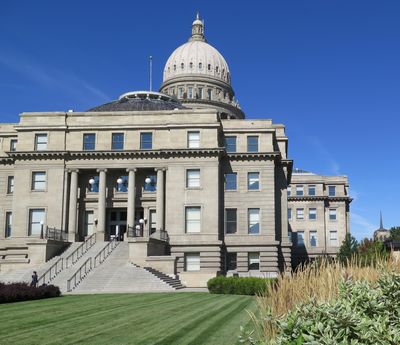Plans for conservative ‘Freedom Caucus’ in Idaho House on hold amid dissension

The co-sponsor of a new legislative caucus for Idaho’s House conservatives said the effort has temporarily stalled, largely because certain “far right” lawmakers seem unwilling to work toward consensus.
Rep. Mike Kingsley, R-Lewiston, said the whole point of the proposed House Freedom Caucus was to unite conservatives and help them achieve real, practical legislative victories.
After meeting with various lawmakers over the summer, though, he’s not seeing much willingness on the part of some to set aside their feud with House Republican leaders.
“What I’ve been feeling from the far right hasn’t been very positive,” Kingsley said. “I don’t think they’re going to calm down to the point that we can move forward.”
The 2016 legislative session featured repeated conflicts between House leaders and a small subset of the most conservative legislators. Before the first week was out, for example, Rep. Heather Scott, R-Blanchard, was stripped of her committee assignments after alleging that female lawmakers need to “spread their legs” to get committee chairmanships.
Scott’s allies – including Reps. Priscilla Giddings, R-White Bird, and Ron Nate, R-Rexburg – subsequently staged a sympathy protest, asking that they, too, be removed from their committees. Giddings also spent much of the session objecting to routine procedural maneuvers, forcing lengthy delays that clearly irritated her colleagues.
Toward the end of the 2017 session, Kingsley and Rep. Bryan Zollinger, R-Idaho Falls, proposed the House Freedom Caucus as a way for conservatives to move beyond these combative techniques and actually use their numbers to influence legislation.
“The whole reason for the caucus was to bring people in and keep them from destroying the conservative message,” Kingsley said recently. “What (the far-right lawmakers) don’t seem to understand is that it takes consensus – that’s how politics works. My goal, and Brian’s goal, is to reach consensus.”
In a separate interview, Zollinger agreed the caucus was proposed as a “unifying effort.” Moreover, he’s still hopeful his colleagues can set aside their differences with House leaders.
“If leadership is willing to work with them and change some of the things that frustrate them, as (House Speaker Scott) Bedke indicated he would, I’m confident they’ll stop the personal attacks,” Zollinger said.
The relationship is unquestionably rocky, though. In a recent radio interview, for example, Giddings likened Idaho’s Republican establishment to the communist North Korean regime, saying they’re both “playing a political game of trying to make it look like they have something they don’t.”
She also suggested “the establishment” isn’t working in the best interests of Idaho citizens and seemed dismissive of efforts to build consensus.
“Just yesterday I had a proponent of the establishment say I need to learn how to find common ground,” she said. “They asked what I can do to cave, so we can get along. We can’t keep compromising.”
In response to a subsequent email inquiry, Giddings said building consensus “is playing politics. True work for the people builds its own consensus through our Republican form of government.”
She also maintained that she is “unaware of any feud in the House” – even though, in her radio interview, she specifically blamed House leadership for recent news stories questioning whether she should have received a homeowner’s exemption in Ada County at a time when she was registered to vote in Idaho County.
“They’re trying to stir up more divisiveness,” Giddings said. “It’s Republican leadership doing this.”
In response to a separate email inquiry, Nate indicated that he, too, is “not aware of, nor concerned about, feuds with leadership.”
He said his goal is to reduce the size of government, reduce taxes and reassert Idaho sovereignty. Sometimes that involves passing bills, sometimes it means blocking bills, and “sometimes it’s fixing a broken legislative process.”
“True consensus comes from the people,” Nate said. “If we’re proposing freedom-friendly bills, the consensus comes from citizens voicing their views, not from back-room deal-making.”
Kingsley said he’s taking a wait-and-see approach toward the new House Freedom Caucus. If enough conservatives are willing to work together in a positive, practical manner, then it could still be an effective platform during the 2018 session.
“We’ll know more once we get down (to Boise) and see how much interest there is,” he said.
Zollinger said he expects the effort to move forward in some fashion. If the caucus doesn’t vote as a block or even take positions on legislation, he said, it could still serve as a discussion group.
Whatever approach it takes, Kingsley remains convinced there’s a need for conservative legislation – and that working cooperatively with fellow lawmakers is the best way to advance that goal.
“When good, conservative legislation gets locked in drawers because of personal agendas, that’s bad for Idaho,” he said.